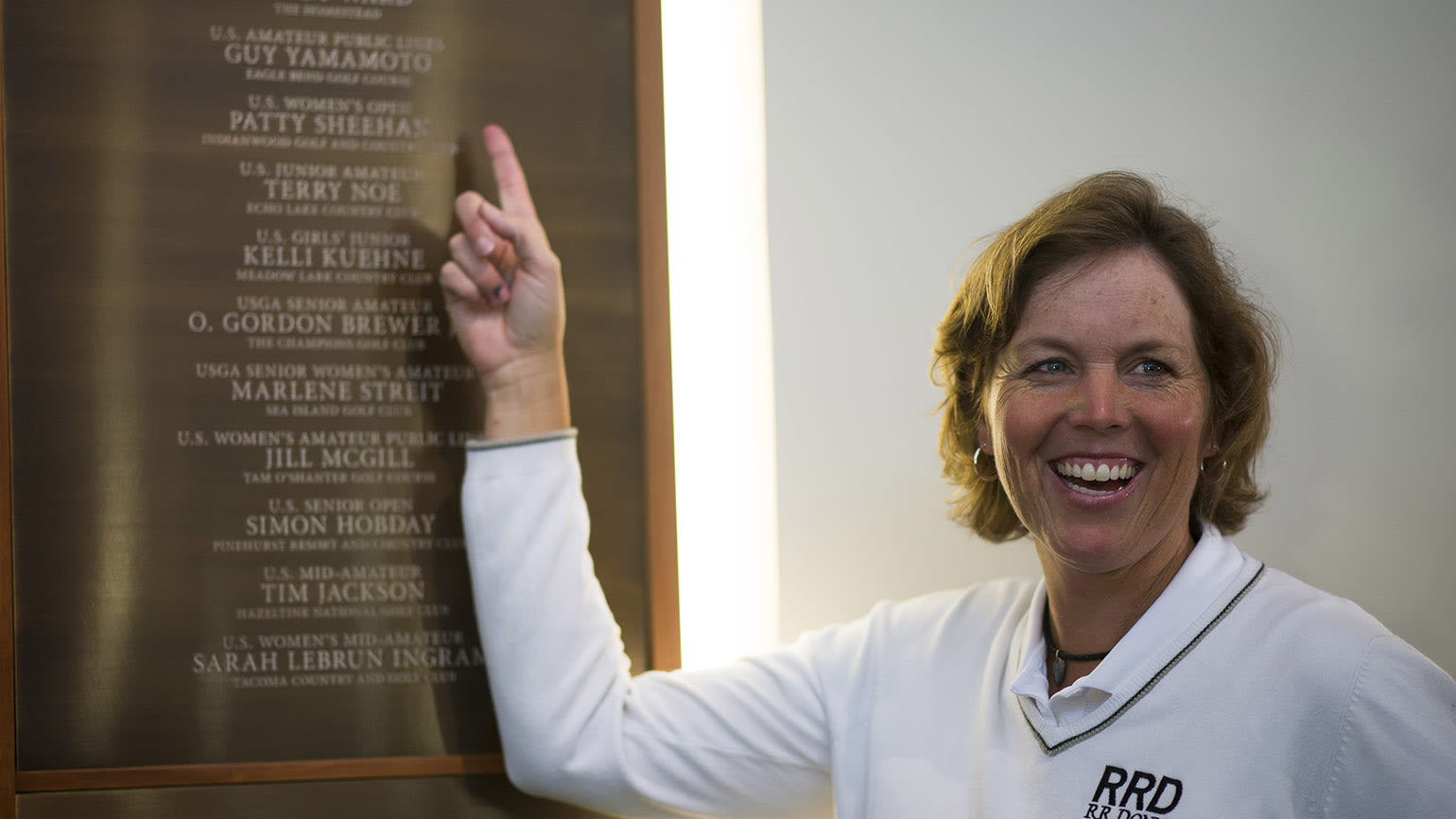“I’ve planned my summer pretty well, practicing hard the last two or three months,” said Sorenstam, whose best finish in the U.S. Women’s Open was T-27 in 2000 at The Merit Club in Libertyville, Ill. “The USGA is special and being at one of their championships is awesome. This is going to be fun.”
Ward was an All-American at Arizona State University. During her time in Tempe, she won the 1994 U.S. Women’s Amateur and represented the USA in the Curtis Cup Match that same year. She then carved her name into the LPGA Tour record book at the 1997 Fieldcrest Cannon Classic when she set the tour scoring record for both 54 holes (195) and 72 holes (265), both marks later surpassed.
With four top-20 finishes in 14 appearances in the U.S. Women’s Open and four LPGA Tour victories, Ward is seeking another milestone in her USGA experiences.
“I feel extremely blessed for the memories the USGA has given me,” Ward said. “Playing 11 rounds in seven days at The Homestead (in Hot Springs, Va.) to defeat the reigning champ from 1993, Jill McGill, to win the U.S. Women’s Amateur with my dad on the bag and mom walking and cheering in the gallery will always be one of my all-time favorite moments and accomplishments. And playing the Curtis Cup with Jill, Steph Sparks, Ellen Port and all the other teammates was super special too, as it was the first time I got to represent the USA in a world-class environment.”
Ward also has a chance to complete an interesting symmetry. McGill, the defending champion of the U.S. Amateur that Ward defeated on her way to winning in 1994, happens to be the defending champion at this year’s U.S. Senior Women’s Open.
Ward currently teaches at Manito Country Club in Spokane, Wash., and gives clinics and private lessons at the Golf Club at Black Rock in Coeur d’Alene, Idaho. “I really enjoy teaching and sharing all the techniques I’ve learned over the years with all levels and ages of players,” Ward said.
Recognizing that she was burned out after more than two decades of competitive golf, Ward took five years off from tournament play then got the itch again when she turned 45.
“I kind of felt the drive to get after it again on the Legends Tour,” she said. “COVID slowed down the schedule a bit but each year I’ve felt the desire to be more competitive. And seeing Jill win last year and me turning 50 this May really gave me the encouragement and incentive to get back inside the ropes.”
As proof that golf is a game for life, Ward says she now has a deeper knowledge of what it takes to play at the highest level.
“I have a much better understanding of my swing, short game and putting now that I’ve been teaching,” said Ward.
Her back, elbows and knees started causing her problems right before her hiatus, but she’s pushed herself to get physically ready to compete. Mentally, she’s worked with sports psychologist Debbie Crews.
“I have enjoyed reading and gaining perspective on what the best athletes and coaches do and think to be their best and for me get back to being mentally tough like I was when I came out of ASU,” said Ward.
“The fact that we now have the U.S. Senior Women’s Open is very special. It communicates a great message to the fans that we still love to play and can compete just like the men. And it provides the venue for us as players to work hard, put our games to the test and compete again at the highest level against our peers during this next chapter of life.”
Ron Sirak is a Massachusetts-based freelance writer whose work has previously appeared on USGA websites.














